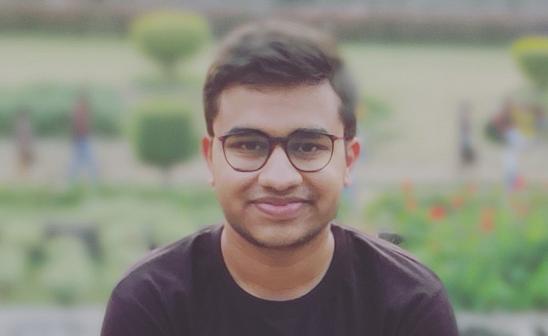Development Innovation Lab Spotlight

Insight into UChicago’s premier development economics innovation center
By Audrey Weckwerth
Nearly a year after its official launch at the University of Chicago, the Development Innovation Lab (DIL) in the Becker Friedman Institute’s Development Economics Center nurtures some of the most captivating research in the field of international development. DIL, directed by 2019 Nobel Laureate Michael Kremer, uses the tools of economics to develop innovations with the potential to benefit millions of people in low- and middle-income countries. DIL continues to transform how the University of Chicago approaches topics in international development, and sets the pace for its global counterparts.
Alongside the faculty team, DIL hosts an array of UChicago students as Student Research Assistants. Devang Laddha, a 4th year in the College who leads an international development student organization on campus, has been working at DIL for the past 2 years.
“As someone from India interested in development economics, I found [DIL] a great opportunity to learn a lot from others’ experience, and to just do really cool work,” Laddha remarked. DIL was one of the first major pushes for development economics at UChicago, and provides a platform to engage with people in and outside the lab via frequent speaker events, lunches, and networking opportunities.
Inside DIL, Laddha works mainly on the administrative side of research, which includes tasks such as crafting literature reviews, designing outreach initiatives, and working with data. Each day poses a new challenge, and Laddha has no shortage of opportunities to explore. “Working across projects has been really fun, because it has given me an opportunity to engage with the [development economics] field and learn about topics the lab is working on.” Plus, working in the lab provides exposure to some of the most important facets of policy work, such as the grant process.
Since last year, Laddha has focused on a long-term project in the Weiss Fund for Research in Development Economics, which, like DIL, is also hosted within BFI’s Development Economics Center. The Weiss Fund distributes millions of dollars in grants to research projects that aim to improve the lives of people living in developing countries. The Fund also strives to create links to policy and implementation for the most relevant and promising research..
Part of Laddha’s motivation to join DIL came from meeting accomplished faculty and staff from the lab who were kind, accessible, and knowledgeable. He retains great relationships with colleagues and supervisors, and can comfortably approach fellow lab members with any topic ranging from questions about lab tasks to career and personal advice.
Laddha’s interest in international development economics extends beyond his work in the lab. He founded and currently serves as the president of International Development Society (IDS), an undergraduate development-focused Registered Student Organization. IDS fosters education and opportunities for UChicago students passionate about international development. Laddha firmly believes in the influential power of DIL on campus, and expects only continued growth, interest, and success in the lab.
“One of the greatest things, perhaps, that the lab has done which I am really proud to be a small part of is to make development economics a larger focus on this campus. While economics is a major force at UChicago and has been for a long time, development economics has largely not been part of that. Now, because of DIL and what it brings to the table, I think that conversation is changing,” said Laddha. “Finally, at least at the undergraduate level, we are talking about development economics, and I think DIL has been critical in allowing that to happen.”
Development economics courses are beginning to grow in the College, and more and more opportunities are available for students to speak to experts and explore potential careers in development economics. Because of IDS, Laddha has a unique perspective to highlight the connective work DIL does for groups on campus: “DIL has brought together a lot of development-related organizations on campus, both undergraduate and graduate. This is important because it allows people to explore more opportunities, reach broader audiences, and bring a diverse array of people to campus.”
Laddha hopes to take what he learned from his experience at DIL and apply it to a career in policy in India. DIL provides unique opportunities and has transformed how development economics is talked about at UChicago.
 THE UNIVERSITY OF CHICAGO
THE UNIVERSITY OF CHICAGO

